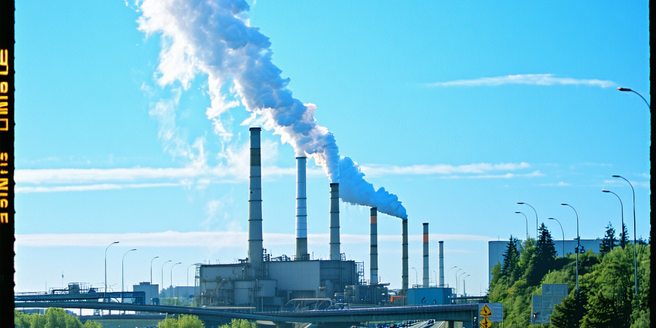
The Science Behind Emissions and Global Warming
Global warming is primarily driven by the increase in greenhouse gases such as carbon dioxide and methane. These emissions trap heat in the atmosphere, leading to a rise in global temperatures. Scientists have established a direct correlation between industrial emissions and climate change. Increasing awareness and efforts to mitigate these emissions are crucial in combating global warming. Fossil fuel combustion for energy and transportation significantly contributes to this accumulation of greenhouse gases. Additionally, deforestation reduces the planet’s capacity to absorb carbon dioxide, exacerbating the warming effect. Climate models indicate that if emissions continue at the current rate, global temperatures could rise by several degrees by the end of the century, resulting in severe environmental and socioeconomic consequences.
Key Industries Contributing to Emissions
Certain industries are major contributors to greenhouse gas emissions, with energy production leading the charge due to its reliance on fossil fuels. The transportation sector also plays a significant role, with vehicles emitting considerable amounts of carbon dioxide. Industrial processes like cement production release high levels of carbon. Agriculture and land use change are further significant sources, producing methane and nitrous oxide. Transitioning to cleaner fuels and enhancing efficiency in these processes could provide significant benefits. Public awareness and policy shifts are essential to driving these changes. These industries’ practices are deeply integrated into the global economy, making emission reductions challenging. However, technological advancements and shifts in practices within these sectors could significantly reduce their impact on the environment.
Impact of Fossil Fuels on Atmospheric Temperatures
Fossil fuels, when burned, release large quantities of carbon dioxide and other greenhouse gases that increase atmospheric temperatures. This results in a thickening of the atmospheric blanket, trapping more heat on Earth. It is becoming increasingly evident that delaying action could result in irreversible damage to our environment. As such, it is crucial for policy makers to take immediate action. The consequence of this is a range of climatic changes, including more frequent and extreme weather events, rising sea levels, and disrupted ecosystems. The reliance on fossil fuels for energy production and transportation has driven much of the observed warming over the past century. Transitioning to alternative energy sources is critical to mitigating these impacts and stabilizing the global climate.
The Role of Renewable Energy in Emissions Reduction
Renewable energy sources, such as solar, wind, and hydroelectric power, play a crucial role in reducing emissions. By replacing fossil fuel-based energy production, renewables offer a sustainable solution to lower carbon footprints. The shift to renewable energy not only curbs emissions but also promotes energy security and reduces pollution levels. In addition, it creates new job opportunities in the green energy sector. Community awareness and education are vital to inspire widespread adoption of these clean technologies. Technological advancements have significantly decreased the cost of renewable energy, aiding its adoption globally. Expanding the infrastructure and incentivizing the transition to renewables are essential steps toward addressing the climate crisis and ensuring a cleaner, sustainable future.
Policy Approaches to Mitigating Climate Change
Effective policy measures are vital in the fight against climate change. Governments can implement regulations that limit emissions from key industries and encourage sustainable practices. To achieve substantial progress, public awareness and engagement must also be fostered to support these initiatives. Education campaigns can play a significant role in increasing public understanding of climate issues. Carbon pricing mechanisms, like taxes or cap-and-trade systems, incentivize reduction in emissions. Additionally, investing in research and development for new technologies can drive innovation and lower the cost of clean energy solutions. International cooperation, as seen in agreements like the Paris Accord, is essential to align global efforts in mitigating climate impacts. Policymakers must balance economic growth with ecological sustainability to ensure long-term climate resilience.
